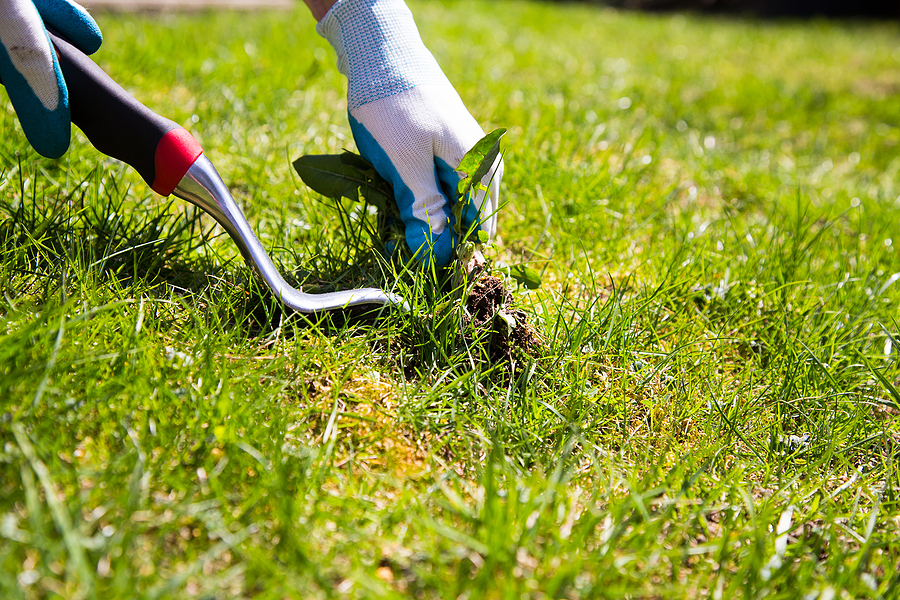A Homeowner’s Guide to Indiana Weed Control

Effective weed control in Indiana lawns requires proactive maintenance and strategic interventions to create a lush, healthy turf. Indiana’s climate, with cold winters and warm, humid summers, affects both weed growth and the types of grass that thrive. Rooted Lawn & Landscape, based in Indianapolis, IN, offers expert recommendations for maintaining a weed-free lawn in Indiana.
Selecting the Right Grass Type
Cool-season grasses like Kentucky Bluegrass, Perennial Ryegrass, and Tall Fescue are the most suitable in Indiana. These grasses are more resistant to weed competition and thrive in the region’s cooler spring and fall seasons.
Best Lawn Maintenance Practices
- Mowing: Mow at the correct height (usually around 3-4 inches for cool-season grasses). Taller grass shades the soil, reducing weed seed germination.
- Watering: Water deeply but infrequently. This encourages deep root growth, making your lawn more resilient and able to outcompete weeds. Aim for about 1-1.5 inches of water per week, including rainfall.
- Fertilizing: Use a balanced fertilizer in the spring and fall. Avoid over-fertilizing, as it can promote weed growth. For Indiana, the ideal times are late spring (April-May) and early fall (September).
Applying Pre-Emergent Herbicides in the Spring
Apply a pre-emergent herbicide in early spring (late March to early April) before weeds like crabgrass and foxtail start to germinate. This forms a barrier in the soil, preventing weed seeds from sprouting. Apply it when soil temperatures reach around 50-55°F for several consecutive days, typically in early spring in Indiana. Common products include Prodiamine and Pendimethalin, which are effective against annual weeds like crabgrass.
Using Post-Emergent Herbicides in the Summer and Fall
Use post-emergent herbicides to tackle broadleaf weeds like dandelions, clover, and plantain that have already emerged. Apply them in late spring or early summer when these weeds are actively growing. You can find recommendations for weed killers online to fit your needs or preferences. Look for herbicides containing 2,4-D, Dicamba, or MCPP for broadleaf weed control. For stubborn grassy weeds like nutsedge, consider specific herbicides like Sulfentrazone.
Weed Control in the Fall
Fall is one of the best times to control perennial weeds. Apply a broadleaf herbicide in early to mid-fall (September to early October) when weeds actively absorb nutrients before winter dormancy. This ensures they take up the herbicide effectively, leading to better long-term control.
Lawn Aeration and Overseeding Techniques
Core aeration helps relieve soil compaction, which improves root growth and nutrient absorption—especially beneficial for Indiana’s clay-heavy soils. Overseed after aeration in early fall (late August to September) to fill in thin or bare spots, which helps crowd out potential weed invaders. Use a mix of high-quality grass seed suited to your lawn’s conditions.
Mulching and Organic Weed Control Methods
Hand-pulling weeds can be effective for small patches. Use a weeding tool for deep-rooted weeds like dandelions. Applying corn gluten meal in early spring acts as a natural pre-emergent herbicide and provides nitrogen to the soil. Mulch flower beds and garden areas to suppress weeds and retain moisture.
Soil Testing and pH Adjustment for Healthy Growth
Conduct a soil test every 2-3 years to check for nutrient deficiencies and pH levels. Indiana soils often lean toward being slightly acidic, so adjust with lime if necessary to achieve an optimal pH of around 6.5-7.0 for most lawns. Healthy soil promotes strong grass growth, which naturally outcompetes weeds.
Timing, Weather, and Herbicide Application Tips
Avoid applying herbicides during extreme heat or drought, as this can stress your lawn and reduce effectiveness. Plan applications before rain or when you can water lightly afterward to help the product reach the root zone, but avoid heavy rain, which can wash away herbicides.
Monitoring and Maintaining Your Lawn
Walk your lawn every few weeks to identify and address weed problems early before they spread. Implement a regular lawn care schedule to maintain a thick, healthy turf that resists weed invasion.
With the right timing, consistent care, and expert assistance from Rooted Lawn & Landscape, you can achieve a lush, weed-free lawn. Contact us at (463) 363-3779 to discuss your lawn care needs.




